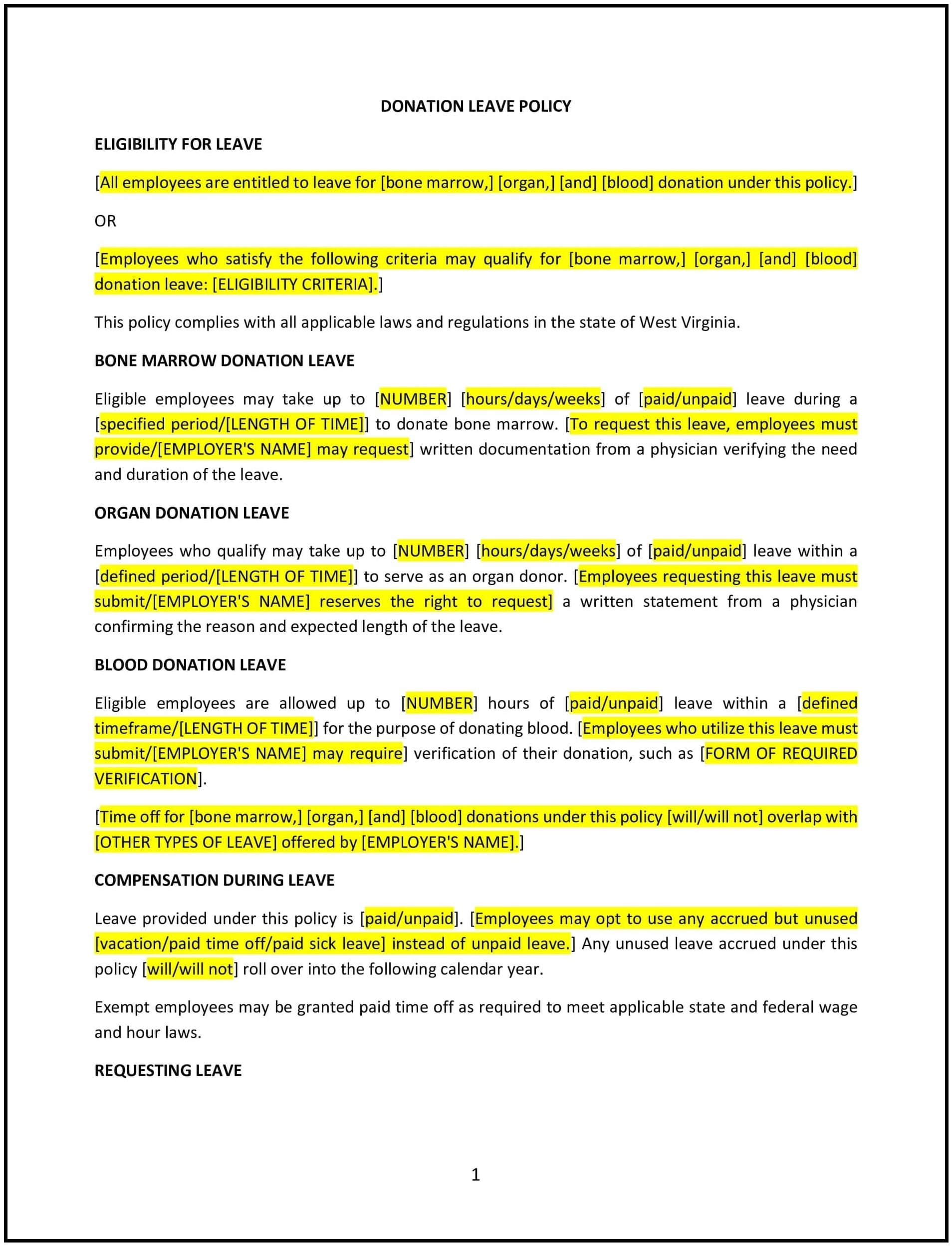Donation leave policy (West Virginia): Free template
Got contracts to review? While you're here for policies, let Cobrief make contract review effortless—start your free review now.

Customize this template for free
Donation leave policy (West Virginia)
In West Virginia, a donation leave policy provides employees with time off to donate blood, bone marrow, or other vital tissues or organs. This policy demonstrates the company’s commitment to supporting employees’ altruistic efforts while balancing operational needs. It aligns with applicable laws and ensures a clear process for requesting and granting donation leave.
The policy outlines eligibility criteria, procedures for requesting leave, and guidelines for handling pay and job protection during donation-related absences.
How to use this donation leave policy (West Virginia)
- Define eligible donations: Clearly specify the types of donations covered under the policy, such as blood, platelets, bone marrow, or organ donations.
- Outline leave duration: Specify the amount of leave provided for each type of donation, ensuring alignment with West Virginia laws or company policies.
- Establish the request process: Provide instructions for employees to request leave, including submitting necessary documentation such as medical certificates or appointment confirmations.
- Address pay guidelines: Clarify whether the leave is paid or unpaid, based on company policy and any applicable state requirements.
- Ensure job protection: Confirm that employees’ positions will be protected during donation leave in compliance with West Virginia labor laws.
Benefits of using a donation leave policy (West Virginia)
- Encourages altruism: Supports employees in making life-saving donations while balancing workplace responsibilities.
- Promotes well-being: Reflects the company’s commitment to health and community welfare.
- Supports compliance: Aligns with West Virginia labor laws and federal guidelines regarding leave for medical-related donations.
- Enhances employee morale: Demonstrates support for employees’ charitable actions, fostering loyalty and satisfaction.
- Reduces ambiguity: Provides a clear framework for managing donation leave, reducing misunderstandings or disputes.
Tips for using a donation leave policy (West Virginia)
- Communicate the policy: Share the policy with employees during onboarding and ensure it is accessible for reference.
- Promote awareness: Encourage employees to participate in donation initiatives by highlighting the policy and its benefits.
- Train supervisors: Provide training to managers on handling donation leave requests fairly and in compliance with the policy.
- Document leave requests: Maintain records of donation leave requests and approvals to ensure transparency and accountability.
- Update regularly: Review the policy periodically to reflect changes in West Virginia laws, medical guidelines, or organizational priorities.